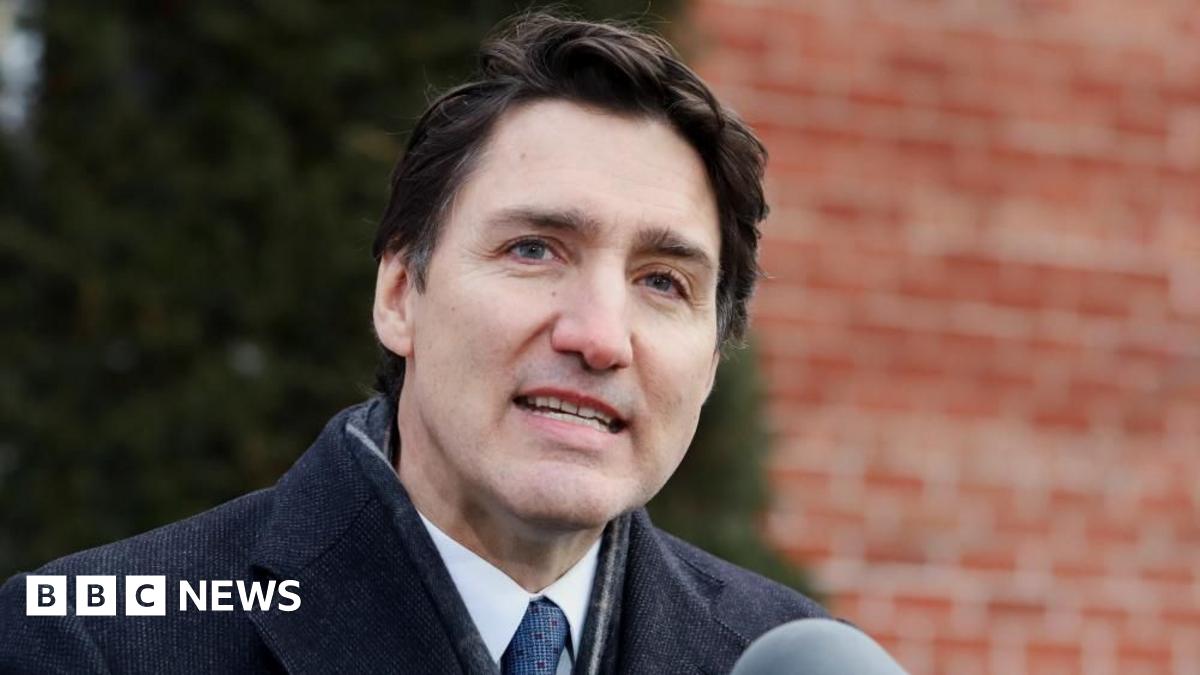Trump reiterated his threat to bring in a “substantial” tariff on Canadian goods unless the country took steps to increase security on the shared US border.
The ongoing tariff threat comes at a politically challenging time for Canada.
On Monday, an embattled Trudeau announced he was resigning, though he will stay on as prime minister until the governing Liberals elect a new leader, expected sometime by late March.
Canada’s parliament has been prorogued – or suspended – until 24 March to allow time for the leadership race.
Economists warn that if Trump follows through on imposing the tariffs after he is inaugurated on 20 January, it would significantly hurt Canada’s economy.
Almost C$3.6bn ($2.5bn) worth of goods and services crossed the border daily in 2023, according to Canadian government figures.
The Trudeau government has said it is considering imposing counter-tariffs if Trump follows through on the threat.
The prime minister also said on X on Tuesday that: “Workers and communities in both our countries benefit from being each other’s biggest trading and security partner.”
During his lengthy Mar-a-Lago press conference, Trump reiterated his concerns he has expressed about drugs crossing the borders of Mexico and Canada into the US.
Like Canada, Mexico faces a 25% tariff threat.
The amount of fentanyl seized at the US-Canada border is significantly lower than at the southern border, according to US data.
Canada has promised to implement a set of sweeping new security measures along the border, including strengthened surveillance and adding a joint “strike force” to target transnational organised crime.
Trump said on Tuesday he was not considering using military force to make Canada part of the United States, but raised concerns about its neighbour’s military spending.
“They have a very small military. They rely on our military. It’s all fine, but, you know, they got to pay for that. It’s very unfair,” he said.
Canada has been under pressure to increase its military spending as it continues to fall short of the target set out for Nato members.
Its defence budget currently stands at C$27bn ($19.8bn, £15.5bn), though the Trudeau government has promised that it will boost spending to almost C$50bn by 2030.
British Columbia Premier David Eby told a news conference on Tuesday that a number of Canadian provincial premiers will soon be travelling to Washington DC to lobby against the possible tariffs.
On Monday, Doug Ford, the leader of Canada’s most populous province Ontario, said Trudeau must spend his remaining weeks in office working with the provinces to address Trump’s threat.
“The premiers are leading the country right now,” he told BBC News in an interview.
Ontario has a deep reliance on trade with the US. The province is at the heart of the highly integrated auto industry in Canada, and trade between Ontario and the US totalled more than C$493bn ($350bn) in 2023.
“My message is let’s work together, let’s build a stronger trade relationship – not weaken it,” Ford said.

